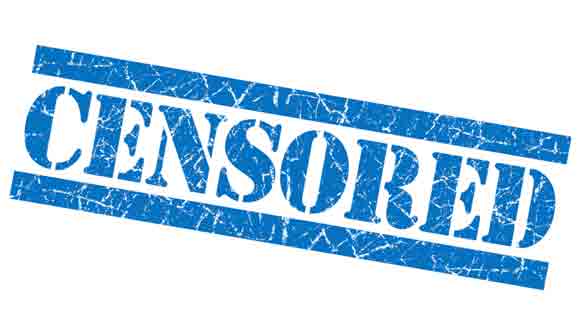
Do you think you are smart enough to know what things to ban? Can you foresee all the unintended consequences of using government might to moralize society?
Some people think they are that smart. Or for some reason, they think restricting people’s freedom will have no larger effect than in the targeted area.
One recent New York Times article wants a porn ban to be an option on the table. The author reminds readers that a decade ago, Americans were having a conversation about banning pornography. But now with the “me too” movement in full swing, he laments that people see a pornography ban as untouchable policy.
But unlike many structural forces with which moralists of the left and right contend, porn is also just a product — something made and distributed and sold, and therefore subject to regulation and restriction if we so desire.
The belief that it should not be restricted is a mistake; the belief that it cannot be censored is a superstition. Law and jurisprudence changed once and can change again, and while you can find anything somewhere on the internet, making hard-core porn something to be quested after in dark corners would dramatically reduce its pedagogical role, its cultural normalcy, its power over libidos everywhere.
It so simple to him. Here “we” have a product that we can regulate if we want, just because it is a commercial product. That’s how government works right? We get to insert ourselves into interactions which have nothing to do with us. We can dictate how others are allowed to interact.
But why are people so arrogant as to think they are the ones who know how to properly control society for the best outcomes?
The author brings up some harmful aspects of online pornography. And he is likely right about the negative effects it has on certain expectations about real-world sex. It very well could contribute to more troubles between women and men. And it is a bad way for young people to learn about sex.
He basically uses a variant of the “for the children” argument. Adults have to be stripped of their rights in order to protect the children. But he, like so many others, ignore the larger societal consequences restrictions create.
The author alludes to porn playing into the issue of sexual assault, by creating a false reality of how men should treat women. But what lesson is government teaching people if they can simply restrict what adults view online? Without an individual’s consent, he wants to say what they can and cannot access online.
He wants to censor online content in order shape views about consent. Except that underwriting the enforcement of a pornography ban would require the government to unconsensually insert itself into transactions between adults. The government would essentially force itself on people who want to view, create, or sell pornography. We have to force people to respect consent.
And simply banning porn would not mitigate those issues without making new ones arise. First, the author admits that anyone who really wants it will still be able to find it. But he argues that then it will be a dirty subculture so we can shame people away from it. And use the government’s guns and cages.
Because he may not say it, but anytime someone talks about a government ban or regulation, they are advocating violence against people. They are saying the government should step in with force to stop people from creating or viewing pornography, even among entirely consenting parties.
And people like him ignore the main overarching problem with bans and aggressive regulation. Coercion causes deeper rifts and problems in our society. Government force makes people go crazy. Literally.
It’s not like I wrote this article to exclaim that pornography is an important human right that should be celebrated and promoted. But rather, it is written from a principled perspective that we should not try to limit other people’s rights just because we personally find them reprehensible. We shouldn’t try to dictate subjective morality.
Other people will have different ideas about what is demoralizing society, and what should be banned to cure it. But that decision is not for them to make. Some people would argue religion is bad for society. Others might argue that video games should be banned, or no one should watch offensive comedy.
But debating how much each of these things hurts society is missing the point. Individuals should not be robbed of their choice. If they are, the consequences of that coercive society will be worse than whatever the ban was trying to prevent.
However “immoral” porn may be, threatening violence against people is worse. When consenting adults engage in interactions of any kind, third parties are wrong, and ultimately violent, if they step in to stop them.
